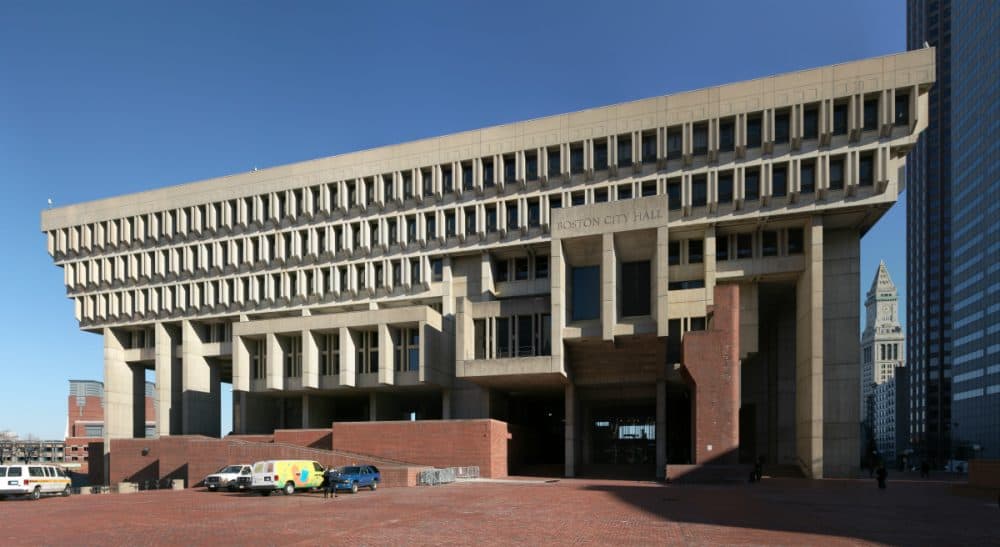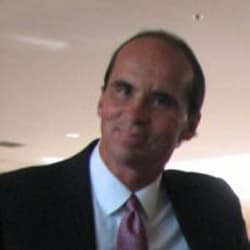Advertisement
On City Hall, Mayor Walsh Should Borrow An Idea From Candidate Walsh

When an officeholder goes looking for a bold idea — or just a change of narrative from, say, a cataclysmic weather pattern and frustration about a city’s response — it sometimes pays to sift through thoughts voiced by candidates in a recent political race. Mayor Marty Walsh might do well to follow up on an idea thrown out during the last Boston mayoral race by... Marty Walsh.
In September 2013, candidate Walsh announced a proposal to overhaul dreary Government Center by selling City Hall Plaza to private developers and moving government operations to another site. Walsh pegged the sale price at $125 million to $150 million, with property tax revenues generating another $10 million to $12 million annually.
A glance at the construction cranes prickling Boston’s skyline reveals two things. First, the cost of capital and construction materials is favorable. Second, private Boston is enjoying a face-lift while public Boston — namely, that squat blot of Brutalist concrete straddling an arid brickyard — scowls on.
In what would be as much a humanitarian gesture as a civic and economic one, Walsh could ... deliver a legacy-making redo of Boston’s downtown core.
Walsh can change all that. In what would be as much a humanitarian gesture as a civic and economic one, Walsh could adopt a public-private model being used extensively in Canada, and introduced in states like California, Michigan and Indiana, to deliver a legacy-making redo of Boston’s downtown core. The dual stroke initiative would bring a mixed-use development to Government Center plaza while relocating City Hall to a nearby site, in a lease-to-own model funded by private capital. Walsh said the city would receive $5 million to $6 million in tax revenue from the property owner during the lease period, helping offset occupancy costs.
Walsh’s 2013 announcement drew criticism from his opponents, but their barbs had more to do with the campaign’s dynamics than the idea’s merits. The mayor called for a “re-imagining” of City Hall plaza in his State of the City address in January, though stopped short of his earlier proposal for a thorough overhaul. Reintroducing his idea would give Walsh a bold objective in his first term, traditionally a time when bold objectives are best unveiled.
The possibilities for development and savings are tantalizing. In Long Beach, California, city officials are reviewing proposals for construction of a new City Hall and main library to be leased back for the same amount the city pays now for operating costs and debt service. The plan would give the contractor development rights at a downtown parcel, similar to the concept outlined by Walsh during the campaign, with the attendant boost in property tax receipts.
Massachusetts is dipping its toe into the public-private partnership (P3) concept, with an early focus on transportation projects. Last November the state Department of Transportation hosted more than 100 representatives of companies interested in forming P3s for proposed construction of a toll-based third bridge over the Cape Cod Canal and express toll lanes on Route 3 between Duxbury and Braintree. Such user-funded, privately financed projects are novel and will certainly spur debate. But in an era when states and municipalities are struggling to maintain existing assets much less build new ones, they deserve study.
in an era when states and municipalities are struggling to maintain existing assets much less build new ones, [public-private partnerships] deserve study.
If state government is testing the P3 waters it seems fitting that the state’s capital and largest city also reviews the possibilities. One way for Walsh to rekindle his campaign idea without expending much political capital would be to create an advisory committee to explore all aspects of a P3 approach to redevelop the plaza and relocate City Hall. With financial projections and feasibility data in hand, the mayor could make an informed decision on pushing or shelving the idea.
Simply by creating the committee Walsh would set media and business tongues wagging and would elicit reaction from the Boston City Council, which, with land use falling within its purview, would have to approve any plan for the plaza. The chatter would be instructive and the mayor would be insulated, having no proposal on the table.
Whether any proposal comes forward would be an outgrowth of economics, project viability, public reaction and political nerve. But Mayor Walsh would at least have vetted candidate Walsh’s idea.
